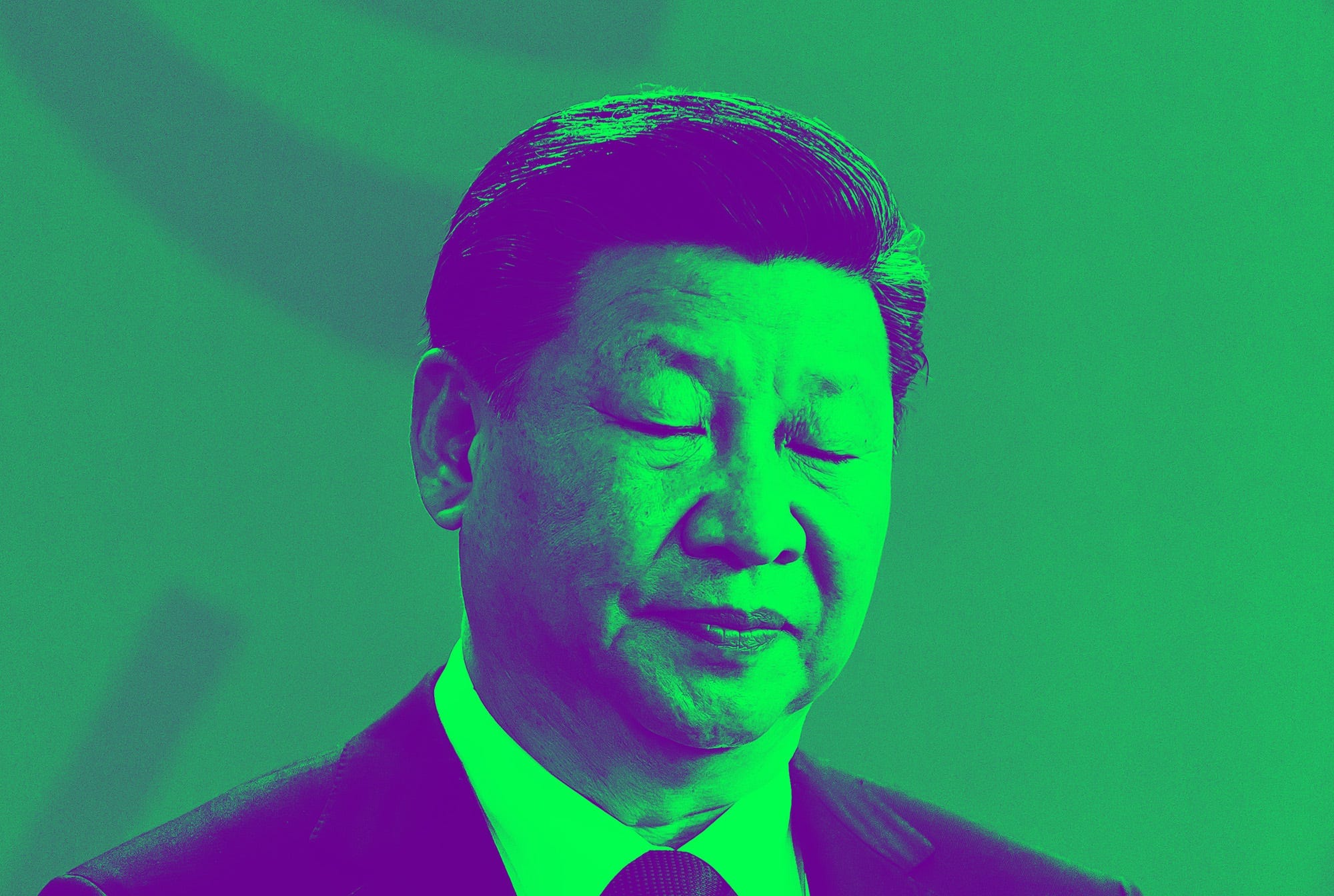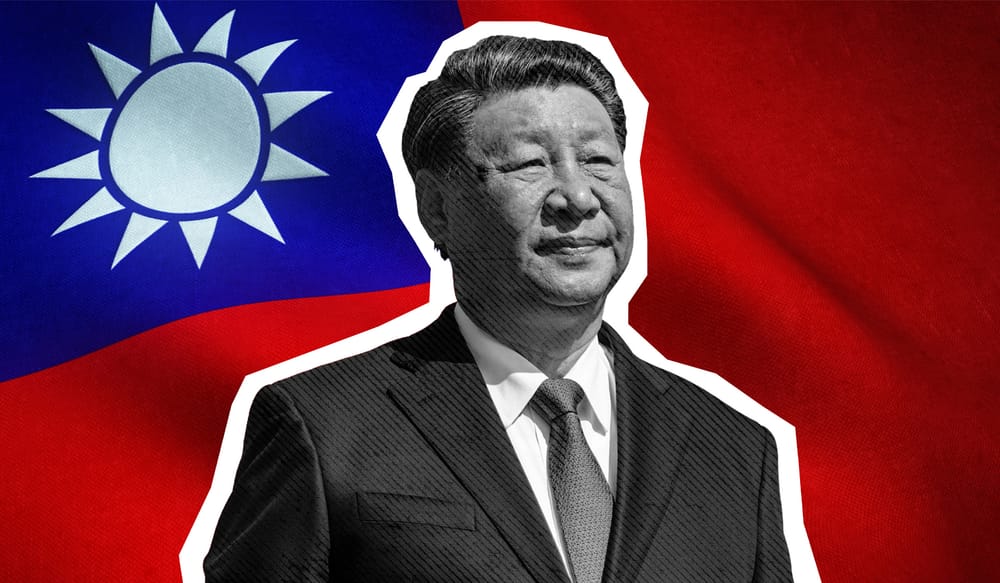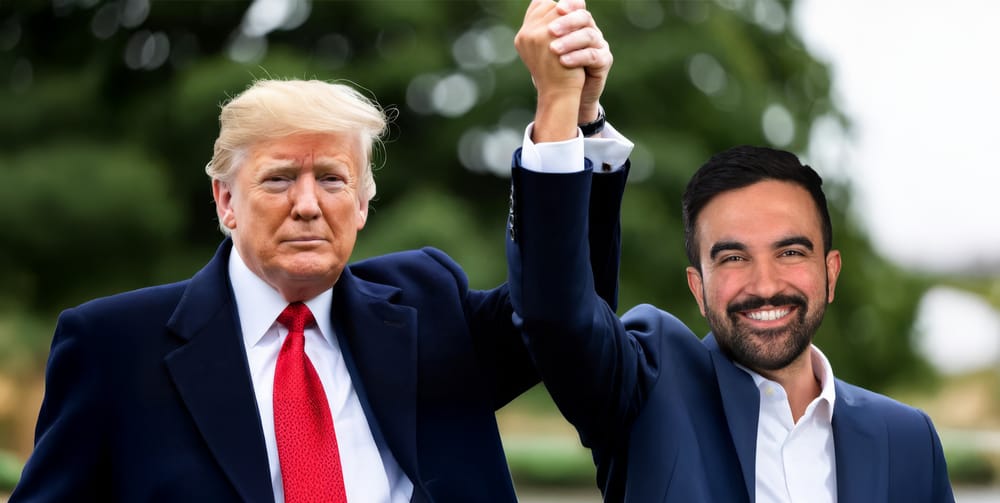China has lost its nerve. A series of statements issued by government officials - including Xi Jinping - and state media last week show that either the Chinese are desperate to reverse the course of the trade war with the US or their diplomacy is so terribly incompetent that they don't really understand the consequences of what they're doing. Or both.
China is reaping what it sowed
In his latest swipe against China, Donald Trump issued an executive order barring American companies from using foreign information technology and services it deems a threat to national security. Its immediate result is a freeze on supplies of necessary semiconductors to Chinese Huawei from its American partners as well as halt on updates and future use of software delivered i.a. by Google - like its Android mobile operating system.
It is a significant blow to the company's global ambitions as the second largest global phone manufacturer, since usage of Google's operating system also enables access to its Play store, with millions of applications from global developers, without which functionality of a smartphone is significantly limited.
The Chinese have already voiced protests about Huawei being effectively singled out but their complaints sound rather comical: "China has emphasized many times that the concept of national security should not be abused, and that it should not be used as a tool for trade protectionism," Commerce Ministry spokesman Gao Feng said last Thursday.
Isn't it just a perfect display of hypocrisy? Coming from a country whose internet is protected by the Great Firewall, effectively barring dozens of American and European companies from providing their services? Google, Facebook, Twitter, Youtube, Dropbox or even Wikipedia.
That is in addition to thousands of businesses which have been prevented from entering the Chinese market due to a number of obstacles, as well as generous support dished out by local authorities to Chinese companies.
When the Chinese ban foreign businesses to protect their national interests it's all fine – when USA bans, effectively, one company from access to American technologies, it becomes "protectionism" all of a sudden?
China's self-defense is rather ludicrous as it has used trade protectionism in the form of legal, economic and informal barriers for decades. That said, one could conceivably still find these domestic policies defensible – i.e. each country is, technically, free to set its own rules (even if it's comically hypocritical).
What cannot be defended in any way is the decades-long Chinese theft of foreign intellectual property carried out in broad daylight and under protection of the authorities.
It had taken three long years until in March this year Jaguar Land Rover was the first foreign car company to successfully sue a Chinese copycat, with the court in Beijing ordering a halt on production, sales and marketing of the blatant rip-off of the flagship Land Rover by Jiangling Motor Corporation:

Other companies had for years tried to fight for justice in Chinese courts - and failed - with many giving up pursuit seeing no hope for a resolution.
In the meanwhile, the copycats have grown in power and wealth. Geely, one of the largest private car manufacturers, famous for its knock-off Rolls Royce Phantom (below), today owns the legendary Swedish brand Volvo, as well as British sports car maker Lotus (and Malaysian Proton):
Geely may be a private company but the major car makers - like the aforementioned JMC - are state-owned, meaning that the authorities have for long been quite fine with what was going on. So fine, in fact, that they have no shame quite literally parading the Dongfeng Mengshi - or just a clone of the American Humvee:
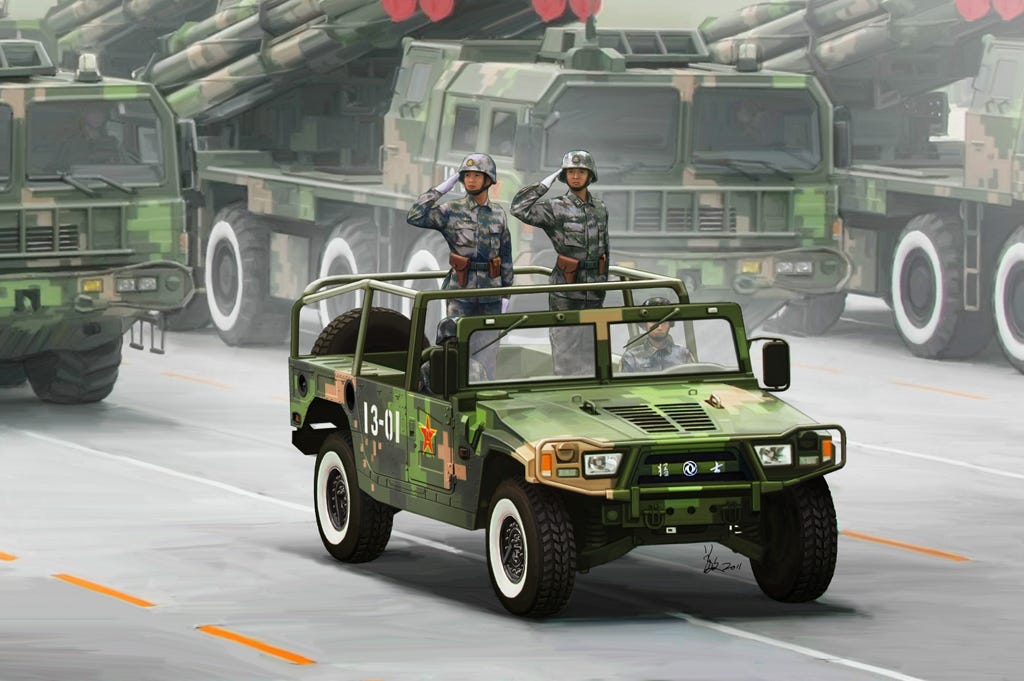
Do the Chinese really want to portray themselves as victims of some injustice when they have kept stealing foreign technologies and ripping off foreign designs to enrich themselves for decades?
China has no friends
A few weeks ago U.S. State Department director of policy planning Kiron Skinner described competition with China as “a fight with a really different civilization and a different ideology."
This opinion received an indirect rebuttal from none other than Xi Jinping, during the opening address at Conference on Dialogue of Asian Civilizations taking place in Beijing last week, where he made a whole chain of eyebrow-raising statements:
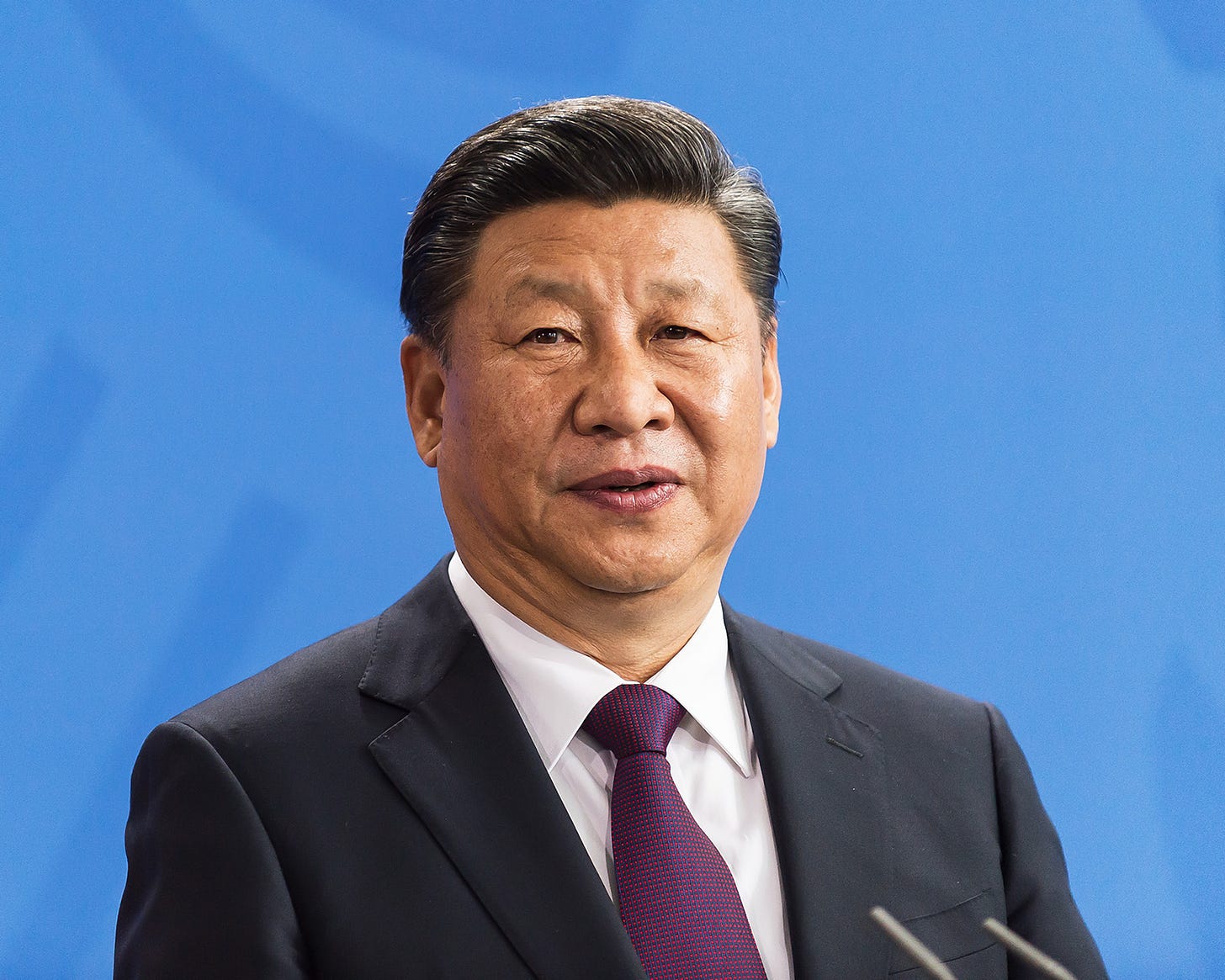
- “If someone thinks their own race and civilization is superior and insists on remolding or replacing other civilizations, it would be a stupid idea and disastrous act,”
- “We should hold up equality and respect, abandon pride and prejudice, deepen our knowledge about the differences between our own and other civilization, and promote harmonious dialogue and coexistence between civilizations.”
- “If countries retreat to secluded islands, human civilization will die out because of a lack of exchanges.”
- "All civilization must progress with time and keep up with the latest achievement,”
- “All countries should conduct exchanges beyond borders of state, time and civilization, and work together to protect the peaceful time we have, which is more precious than gold,”
None of this is particularly controversial but in the mouth of the Chinese President it looks like an act of diplomatic desperation. Xi Jinping talking about cultural exchange and coexistence, while a million Uyghurs linger in detention and undergo state indoctrination merely on the basis of their culture and religion?
The sheer notion of a "dialogue" of "Asian civilizations" coming from the Chinese in the midst of aggressive takeover of swaths of South China sea, looks like a sad joke. Does anybody in Beijing really believe that any sane person is going to accept their narrative?
Chinese president says that no civilization is better than any other - and yet his very own country gives preferential treatment to foreigners of Chinese descent, trying to lure them into PRC or drive a wedge between them and their home countries. Not only is that an attempt at demonstrating civilizational superiority but also a process in which Beijing wants to gain leverage abroad through ethnic Chinese.
On top of that, Xi's entire speech is littered with rather heavy-handed attempts at appeasing others, in what appears to be a frantic search for allies - something the Chinese have zero experience in - giving even more credence to the already abundant anecdotal evidence of arrogance and ignorance among the country's diplomats.
I don't think anybody genuinely believes in his demonstrated fascination in foreign cultures either – especially after the mention of the resort island of Sentosa among world's civilizational landmarks (like the Registan square in Samarkand or ancient Egyptian temple in Luxor) – a rather crude gesture towards the wealthy city-state. It raised a few eyebrows and triggered some snickers even in Singapore, especially since memory of Chinese seizure of Singaporean Terrex vehicles in the port of Hong Kong, while they were being shipped back from a military exercise in Taiwan, is still fresh.
China never misses an opportunity to flex its muscles, even for petty reasons. But the only time it tries to be open and accommodating is when it wants to gain something. That's not how you build relationships.
Beijing has no friends because it is a friend to nobody. It takes whatever it can and makes persistent demands of others, while hiding behind protective walls, hissing angrily at anybody who dares to even make a critical comment about its conduct.
The Qing mentality, which brought about the collapse of Imperial China, appears to be rearing its head again.
Pride Comes Before a Fall
Few nations have a feeling of national disgrace etched into their consciousness more strongly than the Chinese do about their decline and subsequent turmoil for over 100 years, starting in the 1840s, dubbed the "century of humiliation".
Pride, hubris and ignorance of the Qing dynasty exposed the Middle Kingdom to foreign incursions, forcing it to make a series of "unequal treaties", opening to international trade and resulting in huge loss of territory (mainly to Russia). These events shook the trust in the imperial court and, in turn, led to several bloody rebellions and civil wars, the last one concluded after the World War 2 with the victory of the communists and reinstatement of China as a unified state.
It, in part, explains the tough stance of Chinese leadership in the trade talks with the US, as nobody wants to sign any deal that would give undue concessions to America and be seen as yet another "unequal treaty".
But this paranoia has led Chinese leaders astray and clearly clouded their judgment. Their obsession about yielding to any foreign partner shows that they do not understand the meaning of equal treatment in a globalized reality.
Excessive suspicion of the outside world is married to resurgence in pride as the largest nation in the world is now emerging as a true global superpower.
For all its recent successes, China still treats globalization with reserve. It is not a country which wants to participate in it on open, equal and just terms. Chinese do not see the rest of the world as equal but merely as a periphery to their great empire which is now it reclaiming its rightful place among all nations. For them globalization is a zero sum game.
But they also know that their ascent is not done yet and that China is not beyond competition. Unaccustomed to this level of external pressures they have begun acting erratically, losing composure.
Donald Trump pushed them until they blinked. But as they now look for global support they are about to learn that while many despise the American president, they mistrust and fear China even more.
And this isolation is, yet again, Beijing's own fault.
Chinese leaders have cornered themselves. Yielding to Washington now would be a sign of weakness and could undermine their position at the helm of the party. Waiting for too long is likely to end with even more punitive tariffs and – should they refuse to budge until Americans vote in presidential elections next year – could even undermine One China policy, which Trump (if re-elected) may put on the chopping block to turn the screw on Beijing even tighter.
China has long benefited from Western leniency on trade. Today it was asked to pay the bill – and its leaders have to decide how high it is going to be.



